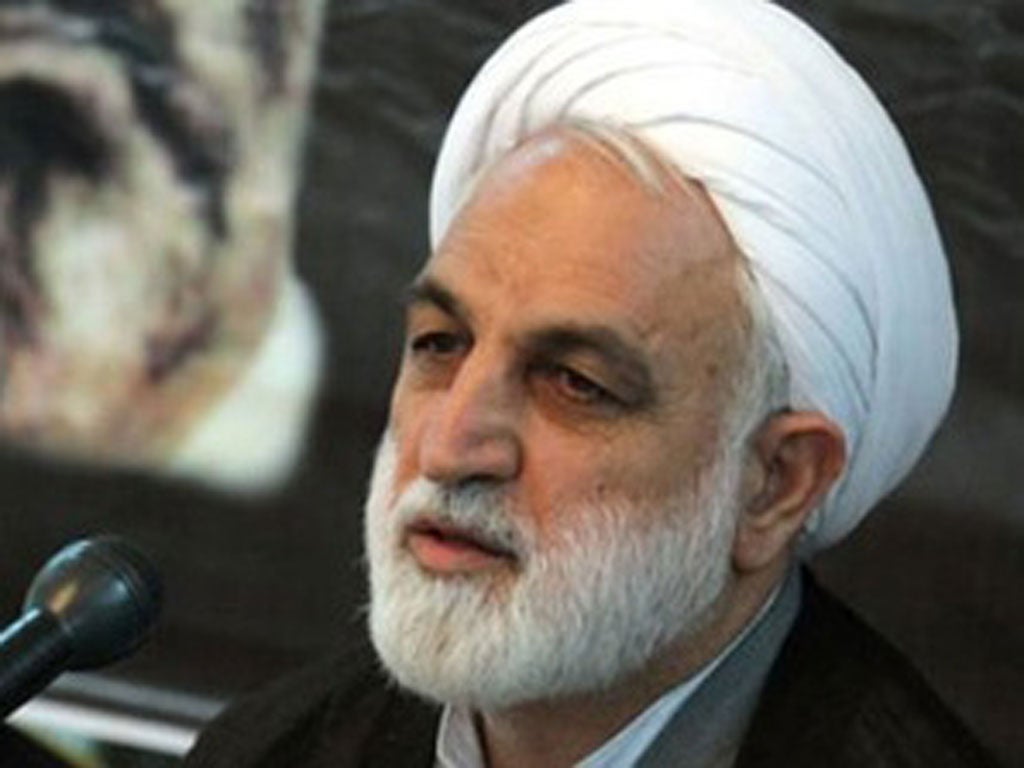Iran accuses Britain of operating spy ring to undermine elections

Your support helps us to tell the story
From reproductive rights to climate change to Big Tech, The Independent is on the ground when the story is developing. Whether it's investigating the financials of Elon Musk's pro-Trump PAC or producing our latest documentary, 'The A Word', which shines a light on the American women fighting for reproductive rights, we know how important it is to parse out the facts from the messaging.
At such a critical moment in US history, we need reporters on the ground. Your donation allows us to keep sending journalists to speak to both sides of the story.
The Independent is trusted by Americans across the entire political spectrum. And unlike many other quality news outlets, we choose not to lock Americans out of our reporting and analysis with paywalls. We believe quality journalism should be available to everyone, paid for by those who can afford it.
Your support makes all the difference.The Iranian government claims it has captured a “spy ring” working for Israel and Britain which had planned to carry out “sabotage and assassinations” to undermine the impending national elections in the country.
Secret documents connected the 12 supposed agents to the UK and the Jewish state, according to the intelligence ministry in Tehran, which also claimed that “a remarkable amount of weapons including firearms and explosives” has been found.
Western diplomatic sources maintained the arrests had been stage-managed ahead of the polls for the presidency on 14 June which had become increasingly enmeshed in domestic recriminations over the banning of prospective candidates including all 30 women.
However, the move also comes at a time of rising tension in the region over Tehran’s support for Bashar al-Assad in Syria’s civil war, continuing Israeli threats to carry out airstrikes on Iran’s nuclear programme and recent arrests of an alleged Iranian espionage network in Saudi Arabia.
Two “spies” were hanged in Iran a fortnight ago. Mohammed Heidari and Kouroush Ahmadi had been convicted, respectively, of working for Mossad and the CIA. The authorities stated other agents were being hunted and would meet the same fate.
Intelligence ministry officials claimed that the “British connection” among the current prisoners was linked to an “intelligence network operating out of the Indian subcontinent”; the head of the “terrorist cell” had been recruited by a “reactionary” Arabic country and he and his team were subsequently trained in Israel and given a list of targets to attack, some of which were designed to inflame relations between the majority Shia and Sunni communities.
Some of those detained, the Iranian authorities said, were members of the leftist Mujahedin Khalq Organisation (MKO) part of the exiled opposition movement which is no longer listed as a terrorist organisation by the US and EU. Tehran had accused Western governments, including the UK, of secretly backing MKO. Similar claims had been about Jundullah, Sunni opponents of the Iranian government, in Pakistan. The alleged British/Indian subcontinent link may, it is believed, be to do with this group.
Gholam Hossein Mohseni Ejei, Iran’s prosecutor-general, said the Islamic Republic was “ready to foil the enemies’ plots” ahead of the election. The arrests were made public just after the Tehran government announced that President Mahmoud Ahmadinejad had, “with God’s help”, escaped from an “accident” which almost brought down his helicopter. The Office of the President praised the pilot for his handling of the aircraft during the “unexplained” problems but did not make any claims of sabotage.
Iran had repeatedly accused Israel and the US of carrying out spying missions and Mossad had been blamed for the assassinations of a number of nuclear scientists.
A week ago Saudi authorities arrested 18 people, 16 of them Saudi citizens, an Iranian, and a Lebanese on suspicion of spying for Tehran.
In a statement issued by 37 Saudi Shia leaders last week, including religious leader Ayatollah Hassan al-Saffar, they accused the government of using the spying charges to escalate communal tensions and to detract public attention from other issues.
Join our commenting forum
Join thought-provoking conversations, follow other Independent readers and see their replies
Comments